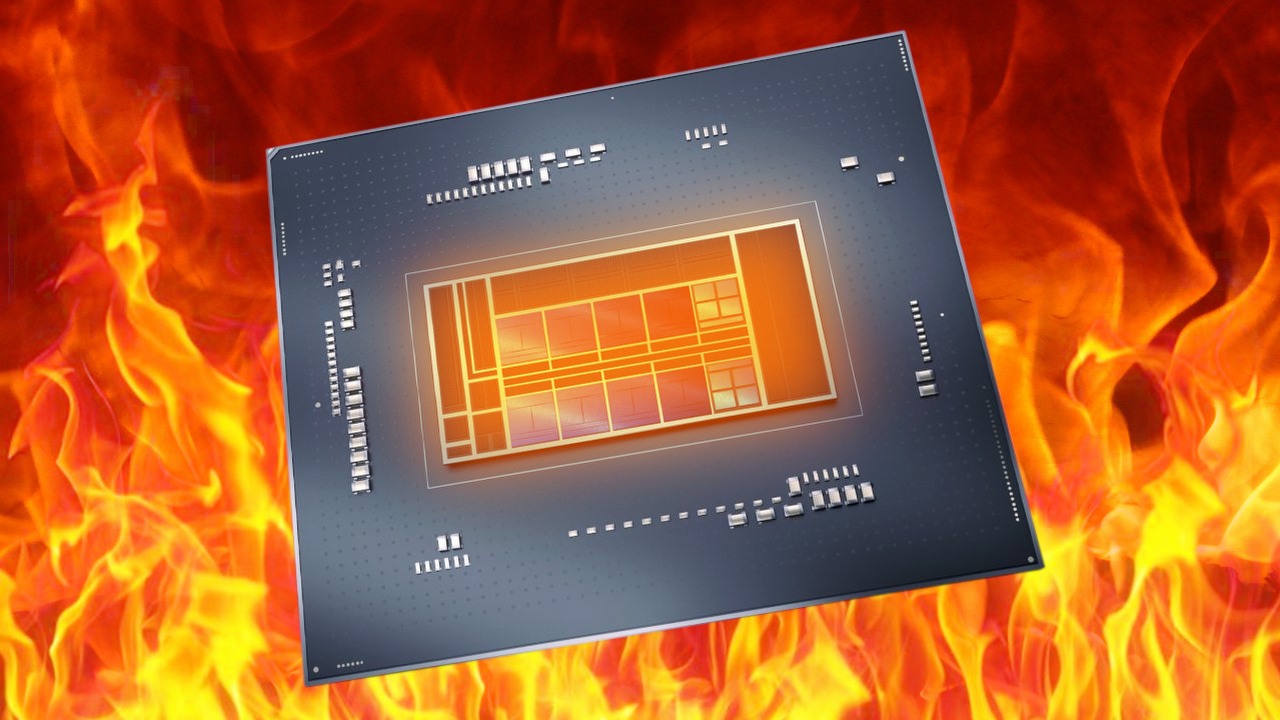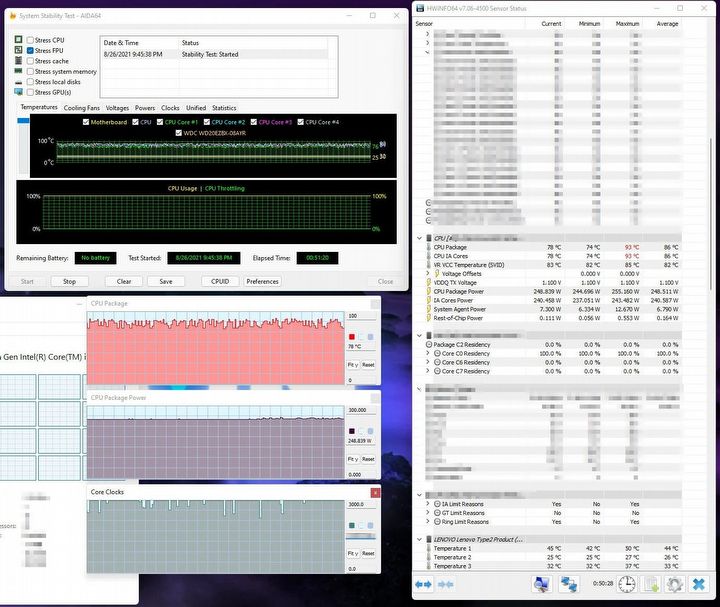Leaked Benchmark Suggest i9-12900K is One Smoking Hot Beast
Load test, most likely involving the new i9-12900K CPU from the Alder Lake-S generation, have been leaked. It was very warm and a lot of power was used.

Intel i9-12900K will be the flagship model of the upcoming Alder Lake-S generation. Its 16 cores and hybrid design (8 performance cores and 8 economy cores) should provide huge swaths of performance and high flexibility at the same time. Weibo published the results of tests, in which this chip probably took part. What is certain, that the test subject achieved very high temperatures, and the power consumption of the processor reached 250W.

The author of the entry is one of the employees of the Chinese branch of Lenovo. According to WCCFTech, he is a gaming desktop and product planning manager. The main role in the tests was played by a RTX 3090 GPU, but the attention of Internet users was drawn to the processor. Judging from the screenshots, it has 16 cores / 24 threads (the number of HWinfo readings and the position of the task manager window indicate this), so it's most likely a Core i9-12900K.
In the tests that lasted about an hour the chip heated up to 93 degrees Celsius. The average power consumption was 248.8 W (according to Intel in case of a TDP of 125 W, the PL2 stage power consumption should not exceed 250 W). We have to admit that this is quite a lot and it's hard to imagine that it could be any other processor than the 12th-gen flagship. However, before we start lamenting about Intel's new gaming "stoves", I'd like to point out that much of the data has been blurred. We do not know the clocking - after all, the processor could be overclocked - and we also know nothing about its cooling.
So it's not worth prejudging anything. We won't know anything about Alder Lake-S CPUs until after they're available for purchase (and the first reviews), which won't be until later this year. The Thread Director feature will take advantage of the new processors' flexibility, but it may require Windows 11 to run, which will be distributed in computer sets in a similar timeframe.
- Intel - offcial website
- Intel Alder Lake Hybrid CPUs Could Shake Up the Market
- Next-gen GPUs May be a Nightmare for PSUs
- Baldur's Gate 3 publisher explains confusion with Divinity: Original Sin 3. We know what Larian is definitely not working on
- PS Plus: Two more bonus games for December 2025 have been announced. One of them is Assassin's Creed: Mirage
- The Witcher 3 gets a new DLC after 10 years? „Biggest source” confirms
0

Author: Arkadiusz Strzala
His adventure in writing began with his own blog and contributing to one of the early forums (in the olden days of Wireless Application Protocol). An electrical engineer by profession, he has a passion for technology, constructing and, of course, playing computer games. He has been a newsman and writer for Gamepressure since April 2020. He specializes in energy and space tech. However, he does not shy away from more relaxed matters every now and then. He loves watching science-fiction movies and car channels on YouTube. He mainly plays on the PC, although he has modest console experience too. He prefers real-time strategies, FPS and all sorts of simulators.
Latest News
- End of remote work and 60 hours a week. Demo of Naughty Dog's new game was born amid a crunch atmosphere
- She's the new Lara Croft, but she still lives in fear. Trauma after Perfect Dark changed the actress' approach to the industry
- „A lot has become lost in translation.” Swen Vincke suggests that the scandal surrounding Divinity is a big misunderstanding
- Stuck in development limbo for years, ARK 2 is now planned for 2028
- Few people know about it, but it's an RPG mixing Dark Souls and NieR that has received excellent reviews on Steam, and its first DLC will be released soon


